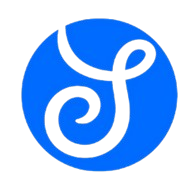AI Sales Assistant Software Market Outlook, Opportunities | 2035

The future of the sales profession is being actively shaped by the strategic decisions of the leaders in the AI sales assistant software market. A focused analysis of the Ai Sales Assistant Software Market Market Leaders—a group that includes CRM titan Salesforce and specialized category-creators like Gong and Outreach—reveals a clear divergence in strategy, with each player leveraging its unique strengths to establish a dominant position. These leaders are not just selling features; they are selling a vision for a more data-driven, efficient, and intelligent sales organization. Their strategies are a response to the market's explosive growth and the enterprise demand for predictable revenue generation. The Ai Sales Assistant Software Market size is projected to grow USD 24.21 Billion by 2035, exhibiting a CAGR of 22.72% during the forecast period 2025-2035. To capture a leading share of this future value, these market leaders are pursuing distinct but powerful strategies aimed at becoming the indispensable AI partner for sales teams worldwide, either by owning the core platform or by dominating a critical workflow.
The strategy of the CRM platform leaders, best exemplified by Salesforce, is one of "infusion and ecosystem dominance." Salesforce's core strategy is to embed its Einstein AI capabilities deeply within its existing, market-leading Sales Cloud platform. The goal is to make AI a natural and seamless part of the daily workflow for the millions of sales reps who already use Salesforce as their primary system of record. By offering features like predictive lead scoring, opportunity insights, and automated activity capture directly within the platform, Salesforce aims to increase the value and "stickiness" of its core offering, driving customers to upgrade to higher-priced editions. Their strategy is not to sell a standalone AI product, but to sell a "smarter Sales Cloud." They leverage their massive data advantage—the vast trove of customer data already residing in their CRM—to train their AI models. Their competitive advantage is their incumbency and their ability to offer a single, unified platform from a trusted vendor, which is a powerful proposition for large enterprises seeking to simplify their tech stack. Microsoft is pursuing a similar strategy with Copilot, but from the angle of its productivity suite dominance.
In contrast, the strategy of the specialized market leaders like Gong and Outreach is one of "category creation and best-of-breed excellence." These companies did not try to build a better CRM; they identified a specific, high-value problem in the sales process that was not being adequately solved and built a world-class solution for it. Gong's strategy was to "un-mute" the sales conversation, creating the category of conversation intelligence. They focus on providing the deepest and most insightful analysis of sales calls and meetings, enabling data-driven coaching and deal intelligence that goes far beyond what a CRM's native tools can offer. Their strategy is to be so good at this one critical function that they become a "must-have" platform for any serious sales organization, regardless of which CRM they use. Similarly, Outreach's strategy was to create a powerful, data-driven platform for sales engagement, helping SDRs and AEs execute their prospecting activities with unprecedented efficiency and effectiveness. Their strategy is to own the "top of the funnel" workflow. These leaders compete by being ten times better at a specific job-to-be-done, justifying their existence as a separate, premium platform that integrates with, but is not subservient to, the CRM.
Top Trending Reports -
South Korea Digital Inspection Market
- Art
- Causes
- Crafts
- Dance
- Drinks
- Film
- Fitness
- Food
- Games
- Gardening
- Health
- Home
- Literature
- Music
- Networking
- Other
- Party
- Religion
- Shopping
- Sports
- Theater
- Wellness



